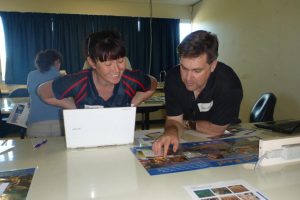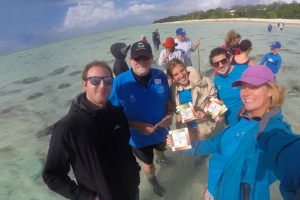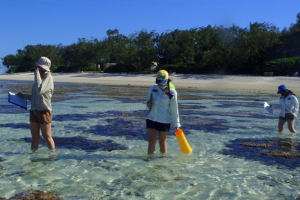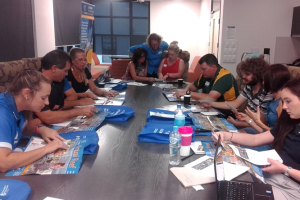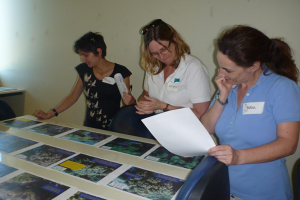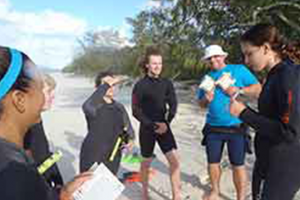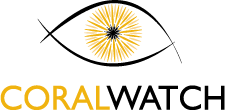
Teacher Professional Development Courses
Educating you to help educate others.
CoralWatch organises many teacher workshops to make you familiar with CoralWatch teaching materials.
Upcoming Teacher PD’s
Act to Protect our Great Barrier Reef
Moreton Bay, QLD, Australia, 4 March 2025.
This one-day practical workshop is suitable for anyone with an interest to learn more about Moreton Bay corals and citizen science, and will be particularly relevant to both senior and junior high school science, aquatic practices, biology and STEM teachers.
Workshop OUTCOMES
• Investigate Moreton Bay corals, the importance and environmental issues such as coral bleaching.
• Utilise CoralWatch tools and curriculum linked materials to bring the reef into your classroom.
• Learn about corals at Tangalooma Wrecks and explore See Moreton’s Marine Discovery Experiences.
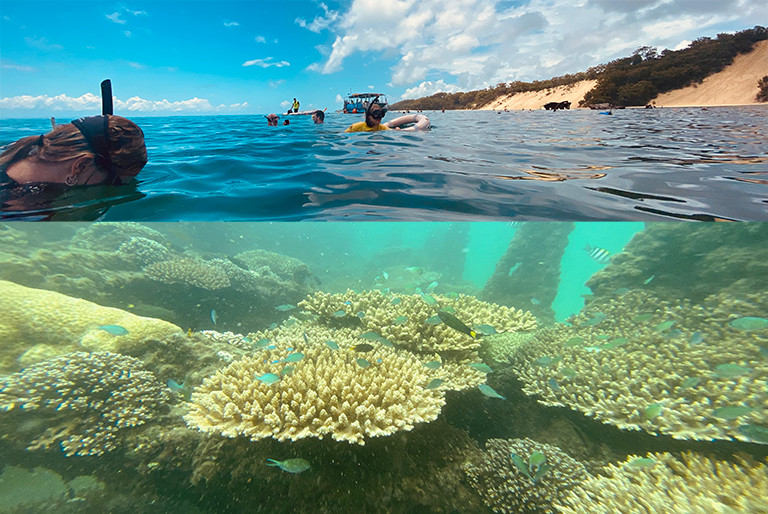
Past Teacher PD
Heron Island, QLD, Australia, 7-10 May 2021.
This four-day practical workshop is suitable for anyone with an interest in the marine environment and citizen science, and will be particularly relevant to both senior and junior high school science, aquatic practices, biology and STEM teachers.
Workshop OUTCOMES
• Engage in professional learning and improve practice.
• Investigate Heron Island corals, importance and environmental issues such as coral bleaching.
• Use CoralWatch tools and curriculum linked resources to bring the reef into your classroom.
• Interpret student data.
• Explore Heron Island Research Station (HIRS).
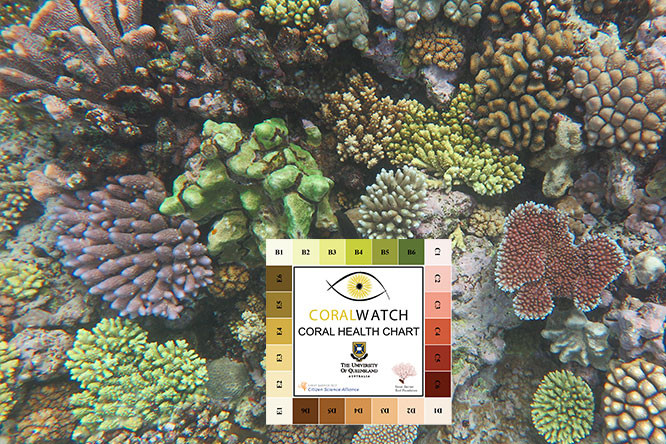
Act and Protect – Taking the reef to the classroom
This four-day practical professional development on Heron Island, focuses on coral biology, reef health and threats, coral bleaching, citizen science and the importance of reef conservation. Learn how to collect and interpret CoralWatch data and identify trends using the CoralWatch global database, investigate zooxanthellae and identify coral genus. Apart from lectures and in-class curriculum linked activities, we will explore and learn about the reef during snorkel trips and low-tide reefwalks.
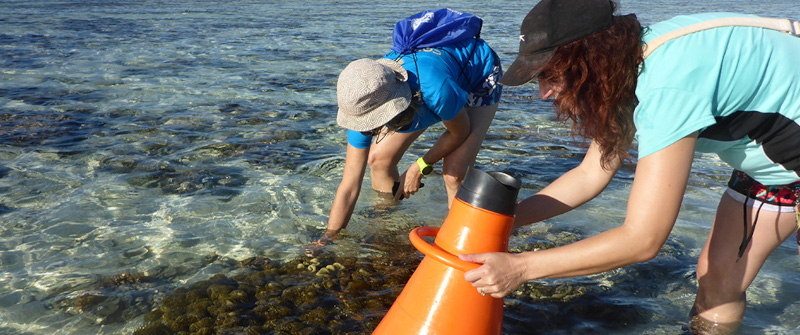
One-day practical professional development in Cairns, focusing on coral biology, reef health and threats, coral bleaching, citizen science and the importance of reef conservation. Learn how to collect and interpret CoralWatch data and identify trends using the CoralWatch global database, and identify coral genus. This workshop will be organised as an extra day after the Marine Science Teachers Association Conference. CoralWatch will be there during the conference as well on the reeftrip collecting data.
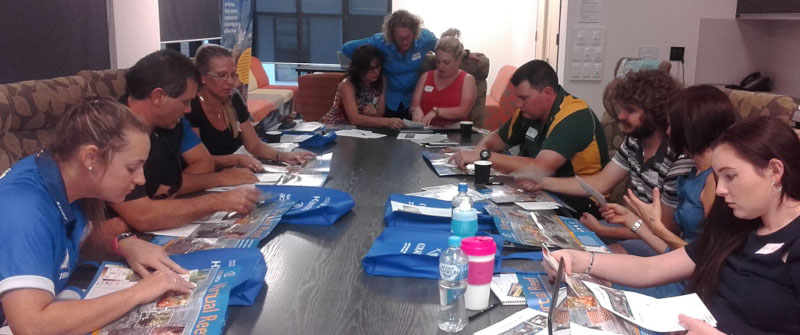
Act and Protect – Taking a closer look at corals
A two-day practical professional development at North Keppel Island Environmental Education Centre (NKIEEC) focusing on coral biology, reef health and threats, coral bleaching, citizen science and the importance of reef conservation. Learn how to collect and interpret CoralWatch data and identify trends using the CoralWatch global database and identify coral genus. Apart from lectures and in-class curriculum linked activities, we will explore and learn about the reef during snorkel trips and a low tide reefwalk.
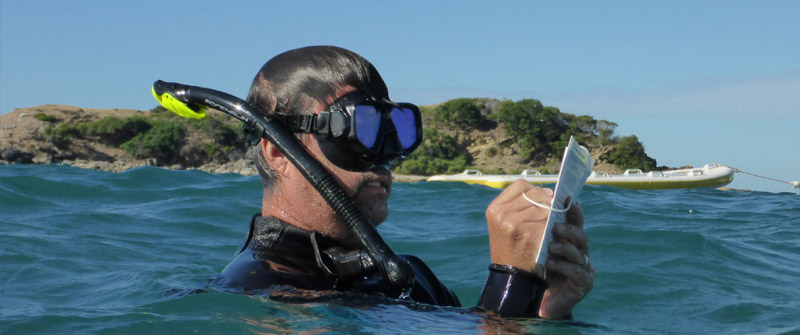
Analysing real-life coral reef data as a resource in your classroom
In this interactive CoralWatch data workshop, participants discovered the wide range of education materials CoralWatch has on offer and learned how they can use the publically accessible global coral bleaching database for science. This real-life data platform holds information on >220.000 corals from >1880 reefs in 79 countries and is an excellent resource. Even without collecting data yourself, data can be extracted from the database and analysed to compare coral health observations between e.g. reefs, countries or over time. In addition, CoralWatch provided some background on coral reefs, coral bleaching and the CoralWatch program. The reef is a perfect teaching subject and can be used cross-curriculum. For those that have access to the reef, we highlighted how students can use the simple Coral Health Chart to collect scientific validated coral health data and contribute to a worldwide citizen science project.
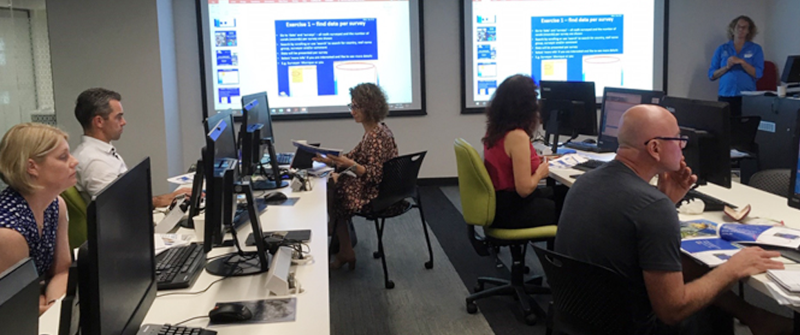
Taking a closer look at corals
A four-day practical professional development on Lady Elliot, focusing on coral biology, reef health and threats, coral bleaching, citizen science and the importance of reef conservation. Participants learned how to collect and interpret CoralWatch data and identify trends using the CoralWatch global database, investigate zooxanthellae and identify coral genus. Apart from lectures and in-class curriculum linked activities, we explored and learned about the reef during snorkel trips and low tide reefwalks.
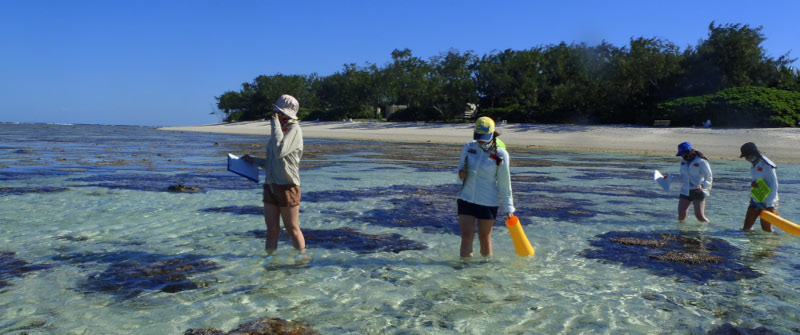
The program has helped increase my knowledge of marine environments and enhanced practical skills and research techniques. At our teacher PD on Heron Island we had lectures about coral bleaching, how to use CoralWatch survey slates, coral classification and setting up permanent transects and tagging coral colonies for regular surveys on the Heron Island reef flat. I’ve passed on these skills to the students so we could apply CoralWatch surveys and techniques to the local area, around Great Keppel Island, and use CoralWatch techniques in Year 11 Biology ecology assessment and Year 10 Marine Operations. The CoralWatch program has also provided an opportunity to collaborate with current research scientists and leading professors in coral reef biology.
Phill Bessel
Rockhampton Grammar School
